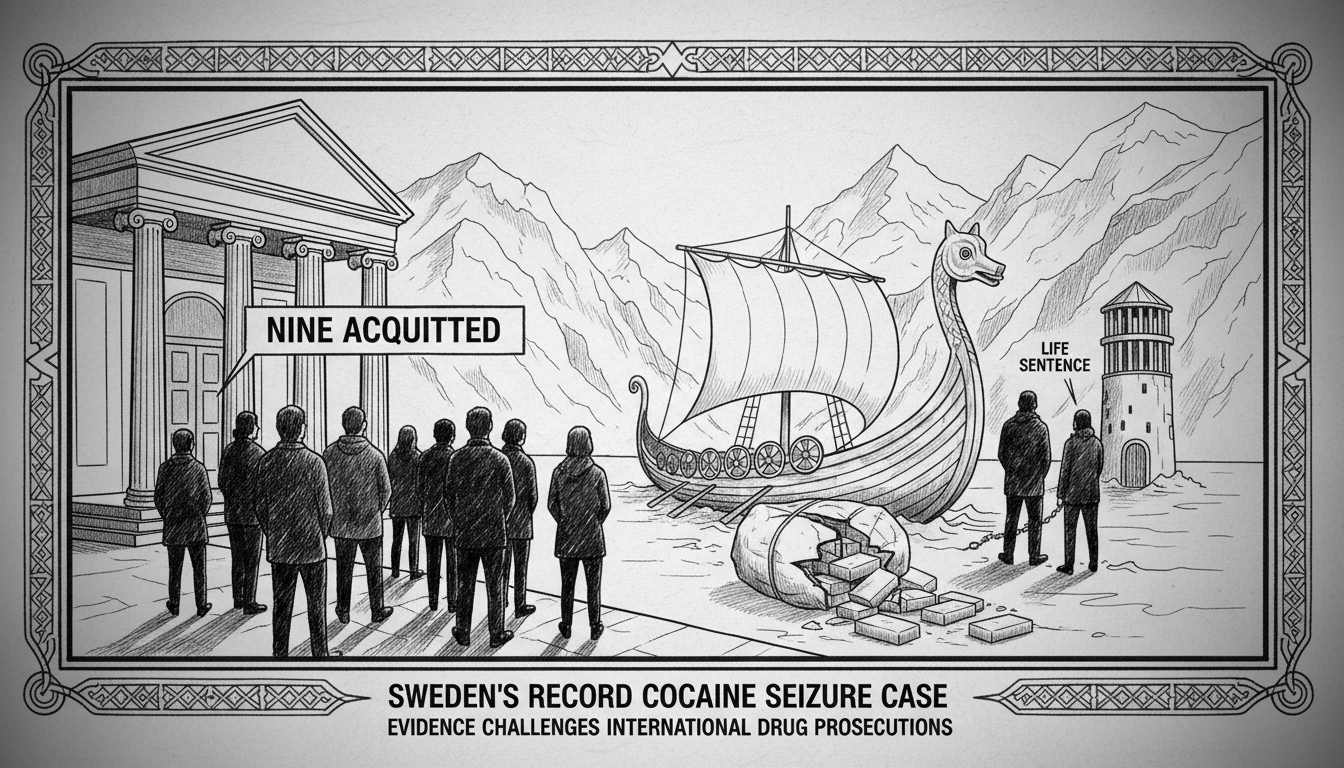A Swedish appeals court has cleared nine individuals previously convicted for involvement in the country's largest cocaine seizure. The Svea Court of Appeal overturned district court rulings that had found them guilty. The case centered on 1.3 tons of cocaine discovered in a container at Nynäshamn's Norvik port.
The massive drug shipment was intercepted on April 18 during a customs inspection. Police had been monitoring a man and woman observing containers leaving the harbor. Customs inspectors discovered the cocaine during a routine check of one container. The seizure represents the largest cocaine confiscation in Swedish history.
Court officials explained the reversal in a statement. They noted several defendants were present when the container was opened. The court determined prosecutors failed to prove they knew or suspected they were retrieving narcotics. This highlights Sweden's high standard for proving criminal intent in drug cases.
Two convictions were upheld in the appeal. One man received a seven-year sentence for serious drug offenses. Another man received life imprisonment for both drug involvement and attempted murder. The attempted murder charge stemmed from a shooting in Malmö last autumn. A 13-year-old boy carried out the shooting on the man's orders.
Gang leader Ismail Abdo, known as 'The Strawberry,' is suspected of organizing the transport. He has not faced charges in this case because he remains outside Sweden. International arrest warrants are typically issued in such situations, but extradition processes can take years.
This case reveals challenges in prosecuting complex international drug operations. Swedish courts require concrete evidence of knowledge and intent. Mere presence at a crime scene doesn't automatically prove guilt. The legal system prioritizes preventing wrongful convictions over securing maximum conviction rates.
Sweden has seen increasing cocaine seizures in recent years. Organized crime groups exploit the country's extensive coastline and major ports. Law enforcement agencies have intensified monitoring of shipping containers. They focus particularly on routes from South America to Nordic countries.
The acquittals may prompt prosecutors to reconsider strategy in future cases. They might invest more resources in proving defendants' awareness of criminal activity. This could involve increased surveillance and financial investigation techniques.
International readers should understand Sweden's legal approach differs from many other countries. The burden of proof rests entirely with prosecutors. Circumstantial evidence often proves insufficient for conviction. This protects individual rights but sometimes allows potentially guilty parties to avoid punishment.
Nordic countries generally maintain strict drug laws with severe penalties. Sweden's approach combines harsh sentencing with extensive rehabilitation programs. The balance between punishment and prevention remains constantly debated in political and legal circles.

